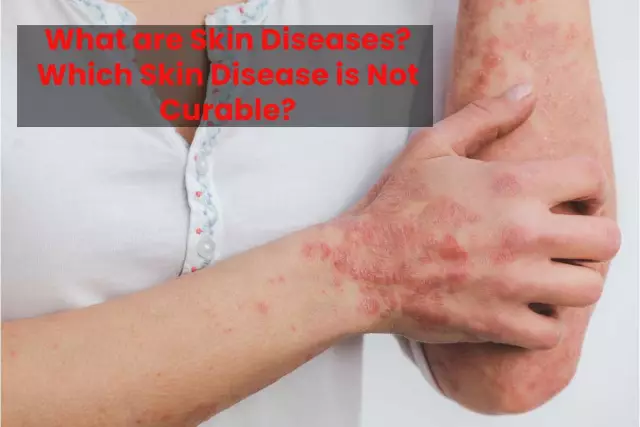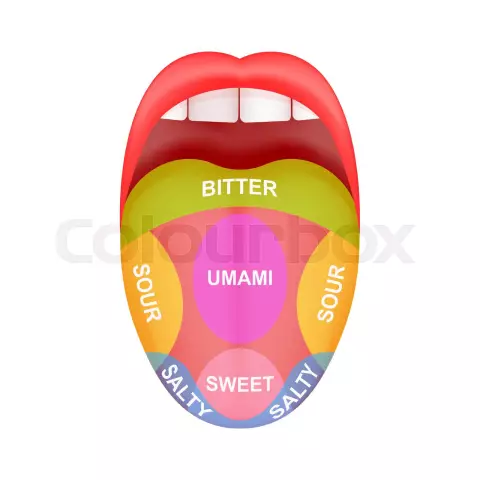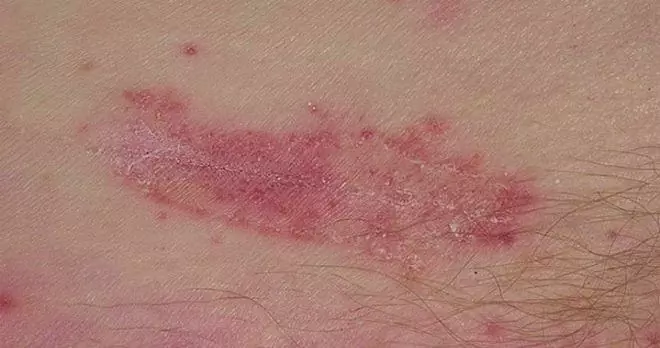- Author Rachel Wainwright wainwright@abchealthonline.com.
- Public 2023-12-15 07:39.
- Last modified 2025-11-02 20:14.
What diseases will your skin tell about?

Skin can tell a lot of interesting things to an inquisitive observer. For example, she can talk about feelings of self, health problems, and even internal conflicts. After all, the skin is an organ bordering on the outside and inside, it covers our body and makes contact with the outside world.
In addition, the skin is an organ of excretion, so any metabolic problems lead to acne and acne. By the condition of the skin, you can determine the lack of certain vitamins, liver or kidney problems, ulcers, gastritis, allergies … And psychologists in pimples and skin rashes can see suppressed emotions and conflicts that a person is unable to express in any other way.
What diseases does the skin speak about?
Pimples on the chin can indicate a genitourinary infection or hormonal imbalance. In adolescents, you can often see pimples on the chin, since hormonal changes in the body occur before the age of 18. But if you are over 20, and you have pimples on your chin, it does not hurt to visit a dermatologist, and possibly an endocrinologist.
A rash on the cheeks can often indicate intestinal or stomach problems. It is possible that the owner of acne on the cheeks may have gastritis or dysbiosis. Therefore, it does not hurt to visit a gastroenterologist and do a gastroscopy.
The forehead is the "intestinal zone", so a rash on it may indicate a problem in this area. In women, a rash on the forehead can also indicate a hormonal imbalance. If you have small red pimples popping up on your forehead, look at your calendar - maybe you have your period soon?
Acne and rashes on the temples, as well as in the upper part of the cheekbones, may indicate a malfunction in the gallbladder or liver. Also, these rashes can be the result of an exacerbation of chronic gastritis.
Itchy, reddened "islets" or individual pimples that pop up in different parts of the face are the result of food allergies. Most often these are reactions to dyes and flavors, as well as to sweets.
Acne constantly popping up in the T-zone (chin, nose and forehead), as well as comedones (black dots that appear due to improper functioning of the sebaceous glands) can indicate all kinds of metabolic disorders, as well as malfunctions of the pancreas and gallbladder. In addition, acne and comedones can cause stress or poor nutrition.
Comedones and inflammations near the earlobe, in the region of the edge of the lower jaw, on the lateral surface of the neck may indicate a weakened immune system and frequent colds and sore throats. In this case, go to an otolaryngologist, he will help you not only clear your nose and throat, but also get clear skin.
Too dry skin in the heels and elbows indicates a lack of vitamins and insufficient moisture, and areas of colorless acne on the body, the so-called "persistent goose bumps", indicate an allergy to cosmetics, medicines or detergents.
What emotional problems can the skin tell us about?
In spoken language, you can find many examples indicating the connection between the skin and emotions. For example, about a person who is hard to stir up, we say - "thick-skinned", and about touchy and emotional - "thin-skinned". When we can’t wait to get down to something, we say - "hands itch", and when we are very scared - "frost on the skin." "Goes out of his way" - so we say about a person who, in order to achieve a goal, is trying to jump over his head.
Therefore, psychologists take skin problems quite seriously. When you start to worry about a rash or irritation on the skin, think about not only physical health, but also about emotional problems.
People with a too developed sense of responsibility, who always strive to "play by the rules" and are accustomed to strictly adhere to social norms, often develop dermatoses. This is due to the fact that these people have overestimated requirements not only to others, but also to themselves. At the same time, a person is far from always able to voice these requirements, and often feels anger that other people do not meet their expectations, do not do what they should do according to the rules. It turns out that all these suppressed emotions are expressed in them in the appearance of psychosomatic reactions - acne, rash and redness on the skin. Such people are also extremely bad at taking criticism in their address, they begin to think that others are constantly trying to find flaws in them. All these manic feelings lead to stress, which becomes the impetus for dermatitis. Ultimately, a vicious circle forms: stress leads to skin problems, which in turn cause stress.

Itching and allergies are common companions to emotional irritation. Unloved work and the lack of the opportunity to do what you love, the constant lack of free time, communication with unpleasant people, an annoying neighbor who constantly drops in for tea - all this is annoying and infuriating. However, we rarely allow ourselves to express such negative emotions out loud, suppressing them. After all, we want to look balanced and pleasant people in communication. However, emotions do not pass just like that, but go inside us, revealing themselves in the form of a skin rash on the skin and an allergic reaction.
Often, the consequence of emotional trauma suffered in childhood (betrayal or violence) manifests itself in the form of acne or excess weight. This is a subconscious defensive reaction. A person behind an ugly appearance feels safe from potential aggressors. Moreover, emotional trauma does not necessarily have such a serious character as physical or sexual abuse. It can be a divorce of parents, an unhappy first love, the death of a loved one. It is important that this trauma makes the child think that close relationships can be painful. And through excess weight and acne, a person tries to protect himself from the inevitable experiences in this case.
Self-loathing, self-rejection, and constant guilt are often the cause of acne in young men and women. Feelings of guilt arise in young people raised by overly strict or religious parents. They are constantly inspired with thoughts about the viciousness of any entertainment, about the dangers of money and all kinds of other taboos. All these thoughts are deposited in people on a subconscious level, and when a person begins to live a normal life - having sex with his chosen one, attending parties, making money, he begins to feel guilt, which can lead to skin rashes as a punishment for "sins" …
How to deal with these problems yourself? Think, do you really need to "go out of your way" in your desire to please others? Or what terrible thing will happen if you let your irritation or anger pour out and tell your neighbor that you don't want to see her again? Why should you feel guilty about doing what you enjoy doing? Finally, take a closer look at those around you. Usually, "light" people who are not used to getting hung up do not have problems with their skin.
Found a mistake in the text? Select it and press Ctrl + Enter.






